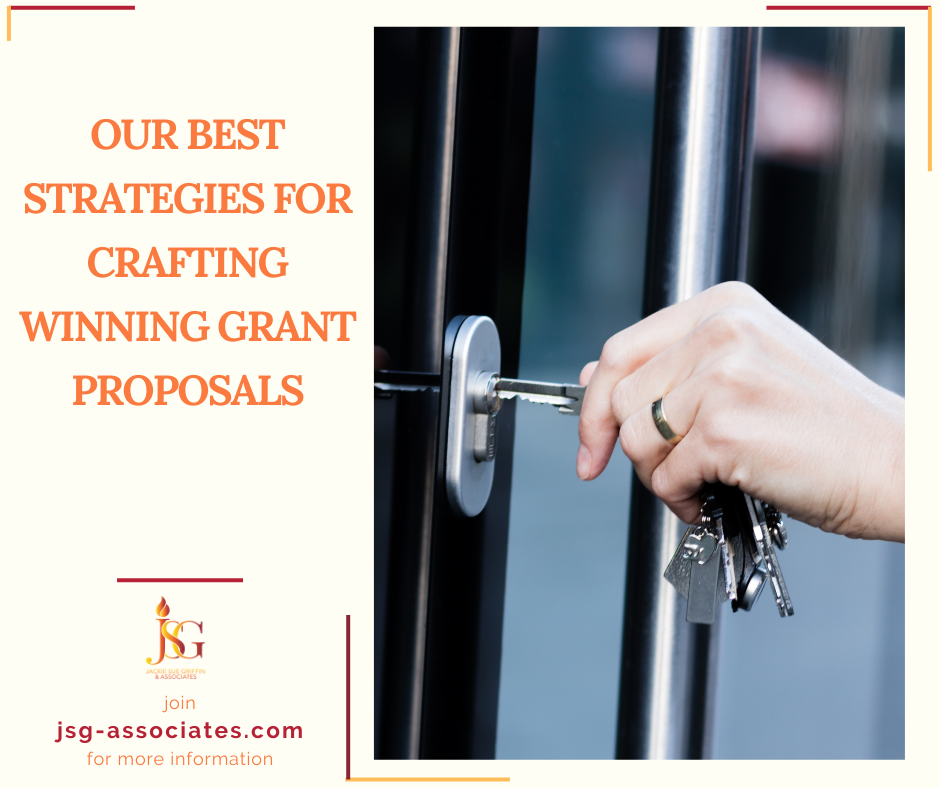
11 Apr Our Best Strategies for Crafting Winning Grant Proposals
Our Best Strategies for Crafting Winning Grant Proposals
Grants are the lifeblood of most nonprofit organizations. Without this funding to support its missions, organizations would be solely dependent on the generosity of private donors and many important initiatives could be overlooked. The process of securing these grants is often highly competitive, with numerous organizations vying for limited resources. In this article, we’ll explore strategies for success in your fundraising efforts, helping nonprofits craft winning proposals that stand out in a crowd of applications and win victories for your cause. By understanding effective approaches to the application process, your organization can beat the odds by securing vital funding to fuel your work.
Never Skip the Research Phase
Research may seem redundant when you’re an expert in your field, but what about your funder? What are the goals they have in mind for the money they plan to distribute? What about presenting them with data that’s easy to understand and proves just how much your community could benefit from funding for your nonprofit? When diving into the grant writing process, these are some things to research first:
- Which funders are the best matches for your organization? This involves exploring various grant databases, websites, and funding directories to find grants that align with your organization’s mission, goals, and programs.
- Eligibility criteria for grants, funding priorities, and deadlines associated with each opportunity. Don’t apply for grants your organization doesn’t qualify for!
- Internal case studies for evidence-based proposal writing can make your organization stand out. Gather data before you even start writing the application.
By investing time and effort in comprehensive research, nonprofits can identify the most promising grant prospects and tailor their proposals accordingly.
Communicate Your Purpose
To write the most effective proposal, organizations should use all the traditional best practices in writing, formatting, and content development. This includes clearly articulating the organization’s mission and objectives, outlining the proposed project or program, and detailing the anticipated outcomes and impact. Use a purpose-driven tone for your proposal. It should incorporate persuasive language, compelling storytelling, and evidence-based data to strengthen the case for access to more funding. By following a structured approach to proposal writing, nonprofits can share their vision and goals with their potential funders in a compelling manner that resonates with grant reviewers.
Create a Realistic Budget for Your Project
Developing a comprehensive budget provides funders with a clear understanding of how requested funds will be allocated and utilized. Nonprofits need to consider additional project-related expenses as part of the overall cost, including personnel costs, supplies, equipment, and other direct and indirect costs. It’s essential to ensure that the budget aligns with the proposed activities and objectives outlined in the grant proposal. Additionally, organizations should work to make these budgeting plans clear and accurate for your budget presentation, providing detailed explanations for each item. By demonstrating fiscal responsibility and accountability, nonprofits build confidence in funders and strengthen your grant applications.
Review Your Work Before Submission
Before submitting your finished grant proposal, thoroughly review and revise the document to ensure accuracy, clarity, and consistency. Triple-check for grammatical errors, typos, and formatting issues, as well as verifying that all information is up-to-date and relevant. Additionally, you can benefit from seeking feedback from colleagues, mentors, or professional grant writers to gain valuable insights and perspectives. Once the proposal is finalized, nonprofits should carefully follow the submission guidelines and deadlines provided by the funding agency.
By carefully following the process of proposal review and submission, your organization can maximize the chances of securing funding. As organizations continue their grant writing endeavors, it’s essential to remain committed to excellence, continuous improvement, and making a meaningful impact in the communities you serve. With dedication and perseverance, nonprofits can unlock new opportunities for growth, sustainability, and fulfilling your mission.

No Comments